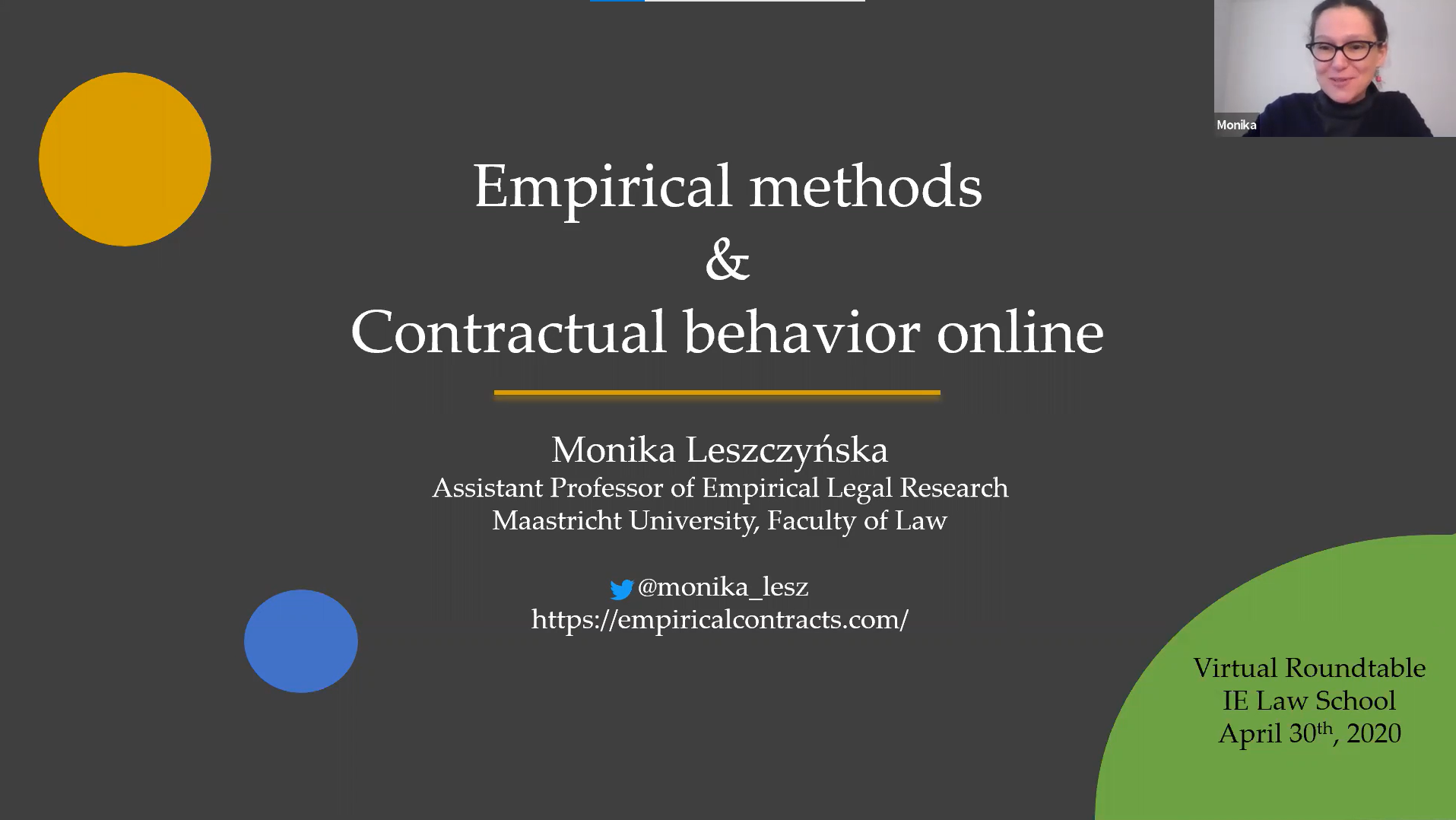
19 Nov Empirical methods and Contractual behavior online
Monika Leszczyńska, Assistant Professor of Empirical Legal Research at Maastricht University, Faculty of Law
Dr. Leszczyńska discussed how empirical methods are a useful tool in the hands of legal professionals to identify the need for a legal intervention, to test legal solutions in order to achieve optimal outcomes, and also to explore the underlying reasons and mechanisms behind people’s reactions and behaviors.
Dr. Leszczyńska presented, first, an example of use of empirical methods in private law to test existing or possible legal solutions. As part of her research, Prof. Leszczyńska examines whether certain contractual formalities, for example signatures, have a cautionary function. The results of her experiments indicate that requiring a traditional handwritten signature, as opposed to an electronic signature, results in less impulsive behavior. In other words, the results of the experiments suggest that the handwritten signature could have a cautionary function in contracts.
The next example that Dr. Leszczyńska presented was a study that helps us identify whether there is a need for legal intervention. In this respect, her research focuses on the non-monetary costs of free versus paid digital content. To illustrate the non-monetary costs of free consent and services, Prof. Leszczyńska brought the example of navigation applications and the number of the permissions requested by applications, which apparently are the same be it a free or paid application.
One of the questions posed to Dr. Leszczyńska was whether empirical methods are used in court. Dr. Leszczyńska’s explained that empirical research is commonly used in trademark cases, where parties heavily rely on research to find out whether consumers might be confused by given trademarks. It also seems common to see courts making empirical claims without referring to empirical evidence.

